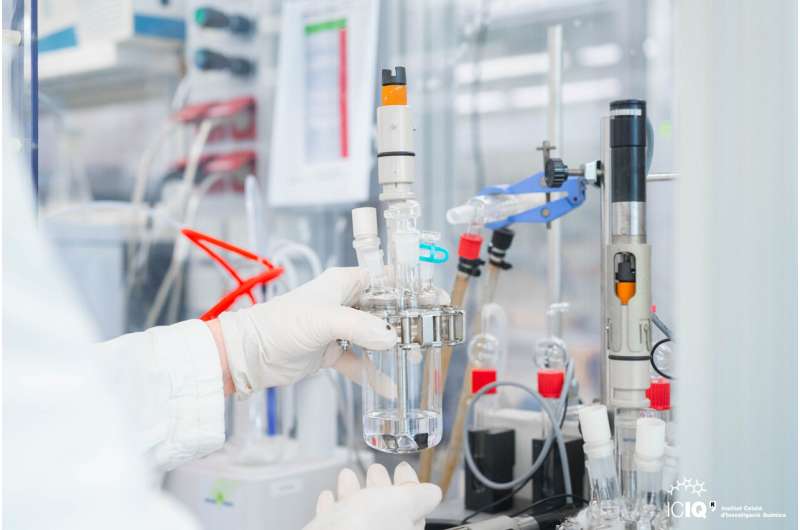This article has been reviewed according to Science X's editorial process and policies. Editors have highlighted the following attributes while ensuring the content's credibility:
fact-checked
peer-reviewed publication
trusted source
proofread
Researchers describe a more sustainable process to recycle biobased polycarbonates

A month ago, the European Union banned glitter. This action was part of an effort that aims to reduce the presence of microplastics in our environment by 30%. Waste plastics are a serious problem for our ecosystems, and the push for recycling plastics, in general, has gained significant attention as a potential solution.
"Circular processes for plastics represent ways to recycle chemical feedstock ideally over and over again, thereby greatly contributing to sustainability, avoiding unnecessary plastic waste accumulation and possible formation of microplastics in our eco-systems," explains Prof. Arjan W. Kleij, Group Leader at the Institute of Chemical Research of Catalonia (ICIQ-CERCA).
All plastics are mainly made from polymers, macromolecules assembled by the union of many small molecules called monomers. Like a construction game, the ideal plastic recycling process would be the controlled degradation of these polymers into smaller products and the repolymerization of them into functional plastics.
Researchers from ICIQ now describe a circular process to depolymerize and repolymerize polycarbonates, a group of plastics often used in medical applications as surgical instruments, in building and construction as an alternative for glass, and in the automobile industry to enhance vehicle efficiency by reducing weight.
The study, led by group leaders Prof. Arjan W. Kleij and Prof. Carles Bo, in collaboration with Dr. Fernando Bravo, manager of the Knowledge and Technology Transfer (KTT) department, focuses on the use of TBD (triazabicyclodecene), a multi-task catalyst, to promote this circular process for a biobased polycarbonate.
"The cycle of polycarbonate generation, degradation towards a cyclic carbonate monomer, and re-polymerization to regenerate the polycarbonate using the same catalyst both in the degradation and in the recycling can contribute to a more sustainable circular economy, in which fewer chemicals are involved," indicates Dr. Fernando Bravo.
The biobased polymer used in this study is formed by monomers of limonene and carbon dioxide, with the former compound extracted from the peel of citrus fruits and available in large amounts from the food industry. Poly(limonene carbonate), shortened to PLC, has an extremely low biodegradability, but chemical degradation, like the catalytic approach presented in this collaboration, can accelerate the degradation process, making it a potentially attractive process for commercial exploitation.
This summer, ICIQ presented a patent for the use of the limonene polycarbonate for adhesive and coating applications as an alternative for oil-based materials. This polymer development is now further complemented by the present discovery, demonstrating the potential of PLC as a circular material to generate plastics that can be easily recycled under practical conditions.
This article, published in Angewandte Chemie International Edition, is an outstanding collaboration between the experimental research done in the group of Prof. Kleij, computational work in the group of Prof. Bo, and the polymer development activities in the ICIQ KTT department, led by Dr. Bravo, that valorizes industrially relevant inventions.
Prof. Bo further adds, "Collaboration among interdisciplinary groups is paramount for research, as emphasized in this paper. This interplay between experiments and theory allows for the integration of diverse knowledge and approaches, enabling a more comprehensive and innovative tackling of issues. Through cooperation, a deeper understanding of the challenges can be gained, leading to the development of more effective solutions."
More information: David H. Lamparelli et al, Bicyclic Guanidine Promoted Mechanistically Divergent Depolymerization and Recycling of a Biobased Polycarbonate, Angewandte Chemie International Edition (2023). DOI: 10.1002/anie.202314659
Journal information: Angewandte Chemie International Edition
Provided by Institute of Chemical Research of Catalonia





















